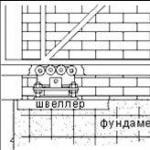The Arbitration Court of the Russian capital will continue to consider today the claim of the Central Bank of Russia to declare Yugra bankrupt for validity. We are talking about a banking institution, which, before the revocation of its license, was in the TOP-30 of domestic financial institutions.
The application of the national financial regulator to declare bankrupt the credit structure "Ugra" was received by the Moscow Arbitration Court in August last year. His license was revoked on July 28. The insured event with Yugra turned out to be the largest in the entire period of clearing the Russian banking sector. DIA experts previously estimated the amount of insurance compensation paid to depositors at 169.2 billion rubles.
Speaking about the main reasons for the decision to revoke the license from Yugra, the Central Bank pointed, in particular, to financing the projects of its beneficiaries through the attracted funds of individuals. The share of such loans reached about 90 percent. Other factors included the banking institution's lack of adequate reserves, the management's repeated oversight, and its breach of earlier structure restrictions. The Central Bank then also informed that the difference between the liabilities and assets of Yugra as of September 8, 2017 was 86.1 billion rubles.
The position of the former owners of Yugra
Official representatives of the ex-owners of Yugra stated earlier that the regulator did not have any unconditional grounds to revoke the license. They, in turn, pointed to the absence of a reduction in all standards for the adequacy of personal funds and the amount of capital below the minimum level, that is, below the amount of 30 billion rubles.
The former owners stated that the complete loss of capital by the bank was the result of changes in the accounting data on the basis of administrative acts by representatives of the interim administration.
In the arbitration courts of two instances, the applications of the owners of the bank "Ugra" were previously rejected. They demanded that the orders of the Central Bank dated July 7, 2017 on the appointment of an interim administration and the introduction of a moratorium on payments to creditors, as well as an order to revoke the license from the financial structure, dated July 28, be recognized as unlawful.
The main owner of Yugra is a well-known businessman Alexei Khotin. Today, he controls 52.5 percent of the capital of the financial institution.
On July 28, 2017, the Bank of Russia revoked the banking license from Yugra Bank. During the work of the interim administration, a complete loss of the bank's capital was revealed, and its recovery was recognized as economically inexpedient. The volume of payments to bank depositors exceeded 100 billion rubles. More than 117 thousand clients received money. The bank's shareholders stated that they would use all legal means to fight for the asset even after the license was revoked from the credit institution.
Why did the problems of the bank "Ugra" cause such a resonance?
From July 10, 2017, the Bank of Russia introduced a moratorium on satisfying the claims of Yugra Bank creditors for a period of three months. At the same time, the regulator entrusted the Deposit Insurance Agency (DIA) with the functions of temporary administration to manage the bank for six months, the Central Bank said in a statement.
This is a fairly large bank, it was in the top 30 Russian credit institutions. Back in 2012, it ranked only 272nd in the rating of banks in terms of assets. However, in recent years, Bank Yugra has been attracting deposits from individuals at rather high interest rates and, largely due to this, has sharply increased its assets.
In the Deposit Insurance Agency (DIA) TASS, the volume of deposits is 181.5 billion rubles. At the same time, most of the deposits are covered by insurance - the agency's liability is estimated at 169.2 billion rubles. DIA that this is the largest insured event in the history of the Agency.
Another intrigue: for the first time in the history of Russia, the Prosecutor General's Office decided by the Central Bank to introduce an interim administration and establish a moratorium on satisfying creditors' claims. Central Bank this protest.
Were there any prerequisites for the emergence of a dangerous situation in the bank?
Yes they were. Back in the fall of 2016, the Central Bank demanded that the bank limit the attraction of deposits from individuals. However, even after that, on the bank's website, they offered to open a deposit at a fairly high percentage, which indicates that the Yugra bank somehow circumvented the regulator's requirement.
On April 25, 2017, there was a failure in the operation of the bank's information systems, as a result of which, until April 27, some depositors had difficulties in receiving funds. Representatives of "Yugra" explained the problems with "violations in the system of external energy supply." After the failure, the Central Bank of the Russian Federation began an unscheduled check at the bank.
According to media reports, in May 2017, the Central Bank ordered Yugra to increase reserves by more than 40 billion rubles.
How did the Central Bank explain its actions, and why did the Prosecutor General's Office protest against them?
"Over the past few months, we have signs that the reporting that the bank itself provides us with is unreliable. We also have signs of a possible withdrawal of assets and possible manipulations with deposits," said Vasily Pozdyshev, Deputy Chairman of the Bank of Russia, introduction to the bank " Ugra" provisional administration. At the same time, the press service of the Ministry of Internal Affairs said that they did not receive materials from the Central Bank about a possible criminal withdrawal of assets from the Yugra bank.
The imposition of a moratorium on satisfying the claims of bank creditors means that the bank temporarily ceases to fulfill its obligations to creditors (that is, those who gave money to the bank). During this period, the interim administration - in this case the Deposit Insurance Agency (DIA) - assesses whether the organization has the money to return all deposits and money in the accounts.
The Central Bank takes such measures if it has reason to believe that the bank will not cope with its obligations - that is, it has less money than it should.
In turn, the Prosecutor General's Office that the Bank of Russia did not reveal violations of mandatory standards by the Yugra bank and noted that the institution is a financially stable credit institution, has the necessary liquidity reserve and has a sufficient amount of funds to carry out its activities. Thus, the introduction of an interim administration and a moratorium have been introduced unreasonably, and these requirements must be cancelled.
Why was Yugra Bank deprived of its license?
The survey of Yugra's financial situation was carried out by the Deposit Insurance Agency (DIA), which was appointed as an interim administration. The audit revealed a complete loss of the bank's capital, and its recovery was deemed economically unfeasible due to the very low quality of assets and the magnitude of the identified imbalance between the value of assets and liabilities. At the same time, the Central Bank took into account that Yugra is not a systemically important credit institution.
As noted by the Central Bank, the bank's activities were aimed at attracting funds from the population and placing them in assets of unsatisfactory quality. In addition, the bank did not independently create reserves for possible losses adequate to the risks taken.
The bank's business model was based on the financing of business projects related to the beneficiaries of a credit institution through deposits from individuals. At the same time, loans were received by companies whose scale of activity did not correspond to the amount of funds received.
The Central Bank has repeatedly identified operations in the activities of Yugra that had signs of the withdrawal of assets and high-quality collateral, dubious transit operations, the facts of providing false reporting, scheme compliance with the requirements of the regulator's instructions, as well as violations of previously introduced restrictions.
Former president of bank Yugra Alexei Nefedov on the groundlessness of the accusations of the Central Bank of the Russian Federation in preferential lending by the bank to the projects of its main shareholder Alexei Khotin. "This statement is unsubstantiated. To control the repayment of loans issued, the bank's shareholder entered into minor control of borrowers, which is not a violation of the regulator's requirements. However, this control of borrowers was insignificant and allowed the shareholder to monitor compliance with all financial obligations to the bank," Nefedov said.
Who and how much money returns to depositors?
Bank Yugra is a member of the state deposit insurance system. All deposits of individuals and money on the accounts of individual entrepreneurs (IE) are insured in the amount of up to 1.4 million rubles. The DIA returns these funds to depositors in full.
Payments to individuals are made by Sberbank, VTB 24, Otkritie and Rosselkhozbank. You can get advice by calling the DIA hotline: 8-800-200-08-05
The volume of payments to depositors as of July 26 is 100 billion rubles. More than 117 thousand clients received money.
Funds of individuals and individual entrepreneurs exceeding the insured amount of 1.4 million rubles, as well as all funds of legal entities (except for individual entrepreneurs) will be returned only after the start of bankruptcy proceedings. The bank's assets will be divided among all those to whom it owes money.
Director of the Department of Banking Supervision of the Central Bank of the Russian Federation Anna Orlenko said that the amount of funds of legal entities in the bank "Ugra" does not exceed 2.2 billion rubles.
I took out a loan from Ugra Bank. Can you not return it?
No. You must fulfill your obligations to repay the loan in full - only now you owe not to the bank, but to the DIA.
Sergey Kruglov, Maria Selivanova
At the same time, the credit institution is trying to challenge the decision to introduce temporary administration by the regulator
Updated 13:35
The Central Bank filed an application with the Moscow Arbitration Court to declare bankrupt the Yugra bank, whose license was revoked ten days ago. In the same court, the bank is trying to challenge the introduction of an interim administration by the regulator, the meeting was scheduled for August 15. On the same day, a rally of investors will take place: the capital's mayor's office has agreed on a mass rally in Sokolniki.
Why does the regulator demand to declare bankrupt a bank from which it itself revoked the license? Here is what the chairman of the board of directors of the National Reserve Corporation Alexander Lebedev says about this:
Chairman of the Board of Directors of the National Reserve Corporation“It seems to me that the Central Bank is simply reinsuring itself in connection with the attack of the prosecutor's office and the owners' attempt to sue. They just duplicate. Well, as if, insisting on their point of view, they are right, of course. Questions are another matter: where did they look before? The practice, when the owners of a billion dollars appropriate through the issuance of technical loans or in other ways, it turns out, continues. The Central Bank is waging some kind of struggle with the owners and the prosecutor's office, since the prosecutor's office is protesting the actions of the Bank of Russia for the first time. But I am simply convinced that the Central Bank is not mistaken - this money is not in the bank. That they are in the passive part, but in the active part they have already migrated into the pockets of the owners. A long time ago it was necessary to make a single state policy for the return of this money from abroad. This is actually not such a complicated story: just present serious claims to the countries where this money is located within the framework of the legal field that has been formed in the world today. It gets stronger every year. That is, roughly speaking, the fight against laundering, fraud and dirty money is expanding every year in the West. For some reason it doesn't concern us. All these 150 billion dollars, which were appropriated by several hundred bankers who moved there, to this money, we do not deal with this as a state. This is what I don't understand. But obviously absolutely no one in the Russian state is interested in this matter. It’s not clear why there is no state policy, why we don’t present this to the West? That's what interests me the most."
The day before, the Deposit Insurance Agency (DIA) reported that 60% of Ugra depositors with deposits outside the insurance limit exceed 100,000 rubles. That is, the losses of depositors are not as big as previously thought. Financial Ombudsman Pavel Medvedev commented on the DIA data on the losses of bank customers:
financial ombudsman“Of course, I have no other information, except for information from the DIA, with whom I discussed this issue. But it is absolutely impossible to imagine that DIA is composing something. Of course it gives correct information. Moreover, the DIA met with representatives of some of these groups that you are talking about, and found out why this excess happened - due to some inaccuracy of citizens. They placed 1.4 million (rubles) at the very beginning, or an amount very close to it, and did not take into account that the interest should fit under the roof of 1.4 million. Basically, this excess is “excessive” - interest. Indeed, relatively small losses, but citizens placed money just for the sake of these percentages, so this is very disappointing.”
Earlier, the main owner of Yugra, Alexei Khotin, proposed to the Central Bank a plan to save the bank, but the regulator considered it unrealistic and revoked the license. Why is the Central Bank now demanding that Yugra be declared bankrupt? Mikhail Mamonov, Head of the Banking Research Group at the Center for Macroeconomic Analysis and Short-Term Forecasting:
Mikhail Mamonov Head of Banking Research Group, Center for Macroeconomic Analysis and Short-Term Forecasting“It is clear that this is a large bank, it is clear that its bankruptcy was accompanied by conflicts - the Prosecutor General's Office, the Central Bank, all that. Maybe we need more justification for the actions of the Central Bank, including a judicial one. Maybe so, I can only speculate. And in general, this whole case with Ugra, on the one hand, is strange, on the other hand, typical. It is strange because it has long been obvious in the analytical environment: the state of Yugra, to put it mildly, raises very big questions, because a bank that four years ago was outside the top hundred, and after a couple of years became 32nd, cannot survive. or 30th even. You can't grow that fast. If you eat everything, there is a great risk that you will eat something wrong, get poisoned, and everything will be bad. Here, roughly speaking, such an infection occurred. The bank grew by leaps and bounds, it just exploded. It was obvious that there would be problems. The strange case is that it is clear that this could not be allowed. Maybe the regulator just didn’t have such an instrument that would limit growth, but it turns out that even a non-systemically important bank, with the current configuration of regulatory parameters, can grow very quickly and create such a risk that 176 billion rubles of deposits now need to be pumped through the DIA.” .
In addition to the rally, the contributors intend to hold a briefing for media representatives on August 9. They want to do this near the main building of the Central Bank in the center of Moscow.
Earlier, Fitch reported that a month before the collapse, large clients withdrew money from their accounts in Yugra. We are talking about an amount of more than 30 billion rubles.
Bankruptcy of Yugra Bank in the summer of 2017, it became almost the main news of the information space. The financial institution was rightfully in the TOP-30 financial institutions of Russia, and this is another proof of its popularity among ordinary citizens and companies. The amount of assets at the beginning of the summer was 323 billion rubles. So it is not surprising that the bankruptcy of Ugra Bank caused a great resonance in the public, and the proceedings of this case continue to this day.
Reasons for the bankruptcy of Ugra Bank
The first question that arises in such cases is why this happened. The noise began to rise when the financial institution could no longer cope with its obligations to customers. Depositors applied for deposits, but were refused for various reasons (the server broke down, the software is being updated, the Internet is disconnected, and so on). The situation occurred on April 25, but by the 28th the work of the departments had improved.
Against this background, an inspection of the activities of the organization was planned, which revealed a large number of violations. The “failure in operation” became only a catalyst, and there are many true reasons for the bankruptcy of Yugra Bank - from minor violations to mismanagement that led the organization to debt. The bankruptcy of Yugra Bank in 2017 was only a matter of time.
Loss of license
At the end of July, or rather, on the 28th, Bank Ugra was deprived of a license to conduct activities. The regulator, represented by the DIA, noted that the organization had completely lost its capital, which made it impossible to continue working. In addition, in the process of checking the reports, gross attempts were found to hide the real position of the structure.
According to the Central Bank of the Russian Federation, the financial institution practically did not lend to individuals. The situation was so complicated that the restoration of the work of the organization was considered inappropriate. As of July 22, 2017, the negative capital of Bank Yugra reached 7 billion rubles. Interestingly, the management of the financial institution does not agree with the assessment and considers such an action by the regulator as an attempt to put pressure on depositors.

Will there be a bankruptcy court for Ugra Bank and when?
Already today we can say that Bankruptcy procedure of Ugra Bank will be long, because the management of the institution does not agree with the assessment and aims to prove the case in the arbitration court. But in practice there was no situation when a banking organization continued its activities after a lawsuit with the Central Bank.
In the event of a bankruptcy trial for Bank Yugra, the Central Bank will provide a full package of papers that can be used in the process. Interestingly, the prosecutor's office does not yet have these documents in hand. If the decision to liquidate has already been made at a high level, there should be no doubt about the existence of an evidence base. The Prosecutor General's Office supports the position of the financial institution, but according to experts, this will not play a significant role.
The DIA and the Central Bank of the Russian Federation have enjoyed great public confidence in recent years, including the top leadership of the country. Consequently, it is unlikely that it will be possible to “save” Ugra Bank even through lengthy litigation. Of course, representatives of the organization will make attempts to protect their interests, but this is unlikely to bear fruit. The only hope is the fact that a peace agreement is reached between the regulator and the financial institution, but eventually the cessation of activities is inevitable.

The Bankruptcy Court of Yugra Bank is scheduled for October 27, 2017 (16.00). The basis is the appeal of the regulator on August 7 to recognize the insolvency of a financial institution. As a result, the DIA bears the burden of paying more than 170 billion rubles to depositors.
Results
The situation with a financial institution from the TOP-30 stirred up the public and its belief in the existence of truly reliable banks. If a large organization can go bankrupt in an instant, the risk remains in relation to each organization. After all, no one knows how management is carried out and whether clients' funds are distributed correctly. We can only hope for the regulator, the quality and timeliness of its inspections. In the meantime, the current bankruptcy is indicative of other potential violators.
We will not get tired of repeating that customers of banks in Russia will experience problems more than once, since it is not clear why people still keep their money in Russian banks. Rather, we understand why, but for some reason, the essence of the banking crisis slowly reaches the average person or does not reach at all.
In the case of legal entities and entrepreneurs in terms of partnerships with banks on cases of doing business, this is a separate story that we do not consider when we talk about understanding the entire situation in the country. But in the case of individuals, this is just the most misunderstanding, because we once again, but it seems that not everyone reads it. But in vain.
In addition, it is necessary to understand that banks in Russia are a dead end, especially for an ordinary depositor. For legal entities and those involved in entrepreneurship, banks may be needed in the future, but for an ordinary “physicist” it is important right now to look for a more profitable and more profitable way to increase and accumulate their capital.
And we hope that the bankruptcy of Ugra Bank will make you fully understand this. Although, again, it is strange that you have not yet understood anything about the banking market as a whole. But, of course, we can be wrong. And if you know the situation better than us, write a comment under the article about it, if you don't mind.
Bank Yugra latest news today
According to the latest data, from July 10, 2017, the Central Bank of the Russian Federation introduced temporary administration into the Yugra bank due to the unstable financial situation in the bank itself for a period of 6 months. What does this mean for the average client (contributor)?
The situation, of course, is standard, and in such cases, one can immediately say that in 99% of such cases, after the introduction of a temporary administration, the bank's license is revoked and it ceases to operate. Such a further development of the situation in the Yugra bank can be confirmed by other cases that have already occurred in practice with Russian banks.
For example, the situation also developed with the well-known Russian bank Tatfondbank, no less large than Yugra Bank, when at first there were problems with customer service, then the Central Bank introduced a temporary administration and imposed a moratorium, and then the bank completely “collapsed” and lost its license.
Bank Yugra problems today
And the problems in Ugra Bank today are as follows.
For the bank itself, the problem is that the bank could not cope with the sharp outflow of capital that legal entities held in the bank.
According to Anna Orlenko, Director of the Banking Supervision Department of the Central Bank, as of June 1, funds from legal entities in the bank amounted to 47 billion rubles, and a month later, as of July 1, the balance was only 2.2 billion rubles.
And of course, this remaining amount will not be enough for the bank to continue to function normally.
Moreover, such an outflow of capital from the bank's assets is a gross violation of the requirements of the Central Bank of the Russian Federation, which, as a result, is a further problem for the bank itself. And the Central Bank of the Russian Federation was forced to take action in the situation that arose.
Moreover, the Central Bank of the Russian Federation suspected the management of the Yugra Bank of making dubious transactions between legal entities (companies) for large billions of dollars, which sometimes reached several hundred billion rubles in volume, which is also a gross violation in the banking sector, the main purpose of which is hiding the financial problems that have arisen in the bank.
For depositors and entrepreneurs, the problems lie in the fact that after the imposed moratorium on satisfying the claims of Yugra Bank creditors, the depositors' money that was in the bank is already subject to an insured event, of course, with subsequent payments of no more than 1.4 million rubles per person , and everything above can be considered lost money, which no one will return to the bank's client.
How much money will depositors in the bank "YUGRA" lose?
According to approximate estimates, approximately a little more than 10 billion rubles will not be returned to depositors, due to the fact that the amount turned out to be more than the “insurance” of 1.4 million rubles. Just imagine this gigantic amount.
When will payments to bank Ugra depositors start?
Payments will begin to be made no later than two weeks from the day the moratorium is introduced in Yugra Bank.
Which bank will pay out money from deposits and accounts according to the register of depositors will be known a little later. So:
- On July 17, in the news from the DIA, it will be possible to find out which bank will be available to receive insurance compensation.
- On July 21, a specific branch of this bank will become known.
- And from July 24, cash payments themselves will begin, according to the register of depositors of Bank Ugra.
For reference:
As of July 10, the total volume of deposits in Ugra Bank amounted to 185 billion rubles! The amount of insurance compensation from the DIA amounted to 169.2 billion rubles.
Attention to the question: where did the 15.8 billion rubles go?
And, quite certainly, you, of course, understood where they had gone. And most likely the correct version will be this - the bankers stole it.
Bank Ugra will the license be revoked in 2017? Bank Yugra possibility of license revocation. What will happen to the bank Yugra?
According to our estimates, the probability of revocation of the license and bankruptcy of Bank Yugra is estimated at 99%. Why? We explain.
Bank Yugra is included, or we can say that it was already in the top 30 largest banks in Russia in terms of net assets, and to be more precise, it ranks 29th. What does it mean?
This means that in any case, it is not profitable for anyone to save the bank, since such large banks need a lot of funds. And they are unlikely to be found in large volumes, which are required for salvation.
Can you even imagine, roughly speaking, you have 100 billion rubles. And in this case, it is easier to simply capitalize (increase and strengthen internal assets) some other operating bank until problems arise, of course, after a competent assessment of existing assets, than to save an already problematic one. This is the main point.
This idea is now even understood in the leadership of the Central Bank of the Russian Federation and in the DIA. And before they did it wrong - they actively saved banks from bankruptcy (sanitized), one might even say, almost all and sundry.
Now you will not find such an approach to problems in the country's banks on a large scale. If they will sanitize, then only small and medium-sized banks. You can practically forget about the rescue of large banks, if not with the top 100, then in the case of the top 50 for sure.
Another proof of the high probability of revocation of the license is that the management of Yugra Bank, long before the appearance of supervision from the Central Bank of the Russian Federation, closed existing offices in some cities. What the bank's clients have repeatedly stated on the Internet and in various forums.
At the same time, it should be taken into account that the offices were completely closed and there was no talk of any restoration of further activities.
And, finally, the main confirmation of the further probable revocation of the license and the bankruptcy of Yugra Bank is that, as it was already said at the beginning of the article that a temporary administration was introduced into the bank for a certain period, which in itself indicates that, according to banking practice, in such cases, the license from banks of the Central Bank of the Russian Federation in the future and in 99% of all cases, withdraws.
Warning for customers of any banks. What should depositors of banks in Russia do?
In view of the further uncertainty of the banking redistribution of the market as a whole, and this is precisely the redistribution and nothing else, we advise everyone who is in one way or another in contact with banks, as a depositor or as a partner, to start thinking for themselves and save their accumulated capital right now. And if you do not, you may encounter unforeseen problems in the future.
Yes, you can continue to keep money in banks. But we advise you to keep no more than 1 - 1.2 million rubles for each bank, leaving the rest of the discount of 200 - 400 thousand rubles for the accumulation of interest on deposits, which in total will amount to an insurance amount of 1.4 million rubles for each bank in which you have made a contribution or several contributions in total.
You can learn more detailed information about how, where and what to invest money to increase, as well as what investment instruments to use, on our website.
And remember that keeping your savings only in banks on open deposits is wrong in itself and does not correspond to a competent approach to the business of a smart investor, since there are more about which you may not know yet, since they have not been studied . And the possible bankruptcy of Ugra Bank is the very case when it is time for you to study them for yourself for the future.
According to the competitive selection, the agent banks that will pay insurance compensations to depositors and individual entrepreneurs of Yugra Bank have become known. They were 5 banks:
- JSC Rosselkhozbank
- PJSC Bank Uralsib
- PJSC VTB 24
- PJSC Sberbank
Acceptance of applications in these agent banks will begin a little later - within a week (closer to July 24).
In order for the depositor to be able to receive a refund, the agent bank must submit:
- Identification document (passport)
- A completed application for the payment of compensation in the form established by the bank, the form of which can be obtained at the branches of the banks indicated above.
More detailed information on specific actions, lists of banks by addresses, lists of depositors by name, which will provide information about which particular branch the depositor will need to contact, will be known a little later.
So, just keep an eye on the further situation - all the details will become known within a week, and also beware of those who provide false information and try to deceive you (this is a warning just in case). Therefore, in any case, work only with official branches of banks directly.
From July 19, 2017, it became known that now each depositor of Ugra Bank can recognize the agent bank, namely, its specific branch (branch), where you can receive insurance compensation.
To find out the specific address of your agent bank, you just need to use the online service - “Find your agent bank”, as a result of which you will receive the address of the bank branch to which you need to apply for payments.
Go to the online service at:
- //www.asv.org.ru/insurance/insurance_cases/yugra/
Enter your data and get the necessary information.
We also note that it will be possible to start receiving payments in agent banks for Ugra Bank depositors from July 20, 2017.
Bank Ugra and the Prosecutor General's Office - what's the point?
As is known, the Prosecutor General's Office of the Russian Federation intervened in the case of the introduction of a temporary administration into the Yugra Bank by the Central Bank of the Russian Federation.
However, from the outside it all looks like "a pug is trying to climb an elephant." It is clear who in this situation is a “pug” and who is an “elephant”, of course, within the framework of the banking market.
That is, neither from the legal point of view, nor from any other point of view, even if the whole situation with the Ugra bank continues to go through the court, no one will benefit from it.
The Prosecutor General's Office of the Russian Federation will not achieve anything in court, since the Central Bank of the Russian Federation, according to the facts and its deepest competence in banking affairs, will be able to prove its correctness of actions. And the bank's clients, in any case, even if the Prosecutor General's Office of the Russian Federation proves something in court, will remain with their own, since the procedure for insurance payments has already been launched and is in full swing.
At the same time, it should be understood that the chances of litigation, despite all the conversations and disagreements, are very small, one might even say miserable. Which means that the whole story with the Yugra Bank will end according to the already standard scenario, the result of which will be another license revocation with a probability of 99% out of 100, which will happen, of course, not quickly, but within the next few months.
Undoubtedly, the intervention of the Prosecutor General's Office of the Russian Federation in the banking sector should benefit, first of all, depositors and bank customers. However, the benefit will only be obtained in cases where the bank is actually financially sound. That is, if the bank is really experiencing financial difficulties, no General Prosecutor's Office of the Russian Federation will help it to avoid revocation of the license.
In addition, it is necessary to understand that in order to create a certain legal framework and broader powers for the Prosecutor General's Office of the Russian Federation itself, in order to be able to successfully solve the tasks set specifically in the banking sector.
But the fact is that at the moment, the legal framework and powers are minimal, very limited and practically not created for the Prosecutor General's Office in order to be able to directly influence the banking sector and, first of all, the Central Bank of the Russian Federation itself.
So, is the intervention of the Prosecutor General's Office of the Russian Federation in the banking sector really necessary?
It is necessary to clearly recognize for yourself that yes, they are needed, but not in situations where a temporary administration has already been introduced into a bank and some actions are already underway with respect to a problem bank, this is the first thing worth noting.
And secondly, the whole point is in the format of interference, according to which it would be nice for the Prosecutor General's Office of the Russian Federation to have powers of supervision over the Central Bank of the Russian Federation, so that even before the start of the procedure for payments for insurance claims and the introduction of temporary administrations in problem banks, it would be possible to suspend the actions of the regulator itself for another in the early stages of the development of events, because, as they say, you can’t jump into a rushing train on the go.
That is, this suggests that all key decisions must first be made at the supervisory level, which was not observed by the General Prosecutor's Office of the Russian Federation in relation to the situation with the Yugra Bank.
Thus, it is necessary to understand that the role of the Prosecutor General's Office of the Russian Federation in the sphere of influence on the banking market of Russia takes place only under certain and, most importantly, already created conditions for this.
And if there are no conditions for direct influence on the banking market and they have not been created, then the Prosecutor General's Office has minimal chances to influence the decisions of the Central Bank of the Russian Federation in relation to banks.
The latest news on Ugra Bank for former clients
As we suggested earlier, from July 28, 2017, the banking license of Yugra Bank was revoked by the Central Bank of the Russian Federation.
That is, there is no Ugra Bank in Russia anymore.
At the beginning of July, the bank was among the top 30 largest banks in Russia, both in terms of capital and attracted deposits of individuals, which indicates that a large number of citizens of the country experienced certain problems, and some even lost part of their savings.
And since more than 500 banks operate daily in Russia, when in fact there are no more than 50-100 banks with net assets, then you, as a client of a particular bank, be prepared for the fact that license revocations from banks in Russia will continue for another for more than one year, at least in 2018-2019, for sure, and also from now on, be prepared to revoke the license from an absolutely bank.
That is, you need to clearly understand that you need to prepare yourself in advance and take certain actions to preserve your own capital, it is better to do it right now, and also look for new sources of increasing your money, if you, of course, have a need for this.
Bank Yugra filed a lawsuit against the decision of the Central Bank of the Russian Federation to revoke the license
The former chairman of the board of Yugra Bank, Dmitry Shilyaev, filed a lawsuit with the Moscow Arbitration Court due to the fact that he considers the revocation of a license frombank is invalid. In the statement of claim, he indicated that there were no grounds for revoking the banking license.
In addition, Shilyaev also emphasizes to this statement that “the bank has completely lost its capital due to the change by the temporary administration of databalance sheet on the basis of administrative acts”, which actually contradicts the legislation on accounting and regulatory documents of the Central Bank of the Russian Federation.
The date for the consideration of the claim is not indicated, however, the preliminary hearing of the case is determined within 5 days from the date of receipt of the applicationto court, that is, the date will be announced soon.
In addition, on September 19, 2017, the Central Bank of the Russian Federation and the bank will meet in court to clarify the circumstances of the introduction of a moratorium on satisfaction of creditors' claims.
Previously, Yugra Bank, through arbitration, had already made an attempt to recognize the decisions and actions of the Central Bank as illegal, this was done even beforerevocation of the license - on July 24, 2017, during the period of temporary administration in the bank, but in the end, the Central Bank of the Russian Federation decided to revoke the license from the bank anyway.


















